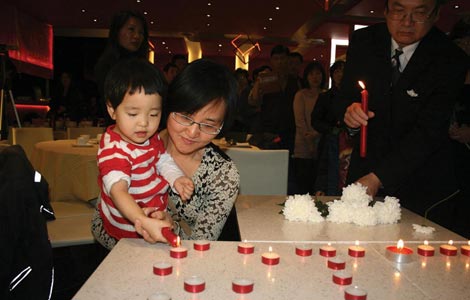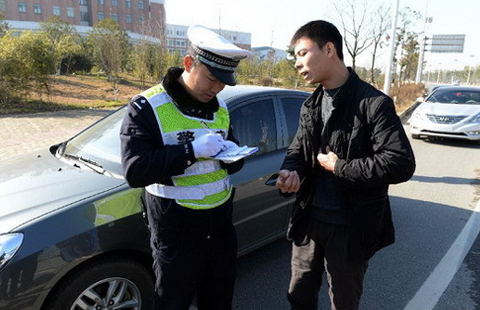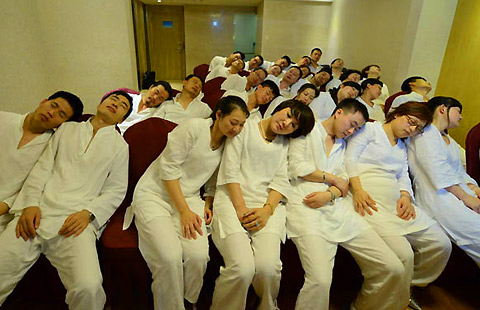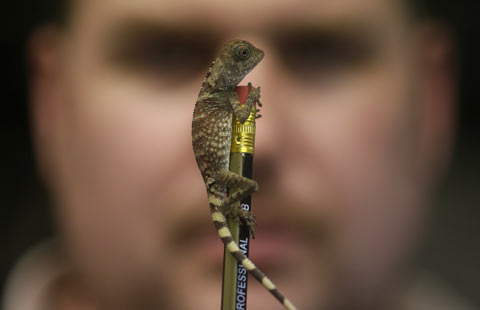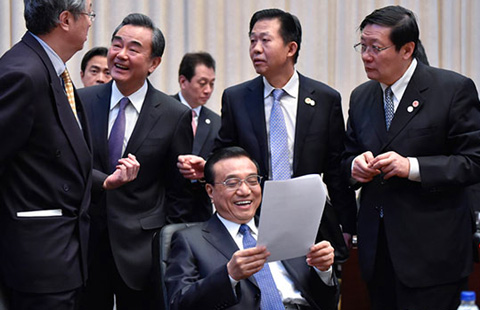China, US to act on food issues
Updated: 2014-12-18 13:55
By CHEN WEIHUA in Chicago(China Daily USA)
|
||||||||
Senior Chinese and US officials stressed on Wednesday the importance of bilateral agricultural cooperation to ensure food security in both countries and around the globe.
Chinese Vice Premier Wang Yang greeted the more than 100 Chinese and US agricultural officials and executives from agriculture and food and nutrition companies the Chinese way by saying "Have you eaten?" to highlight the importance of food security to Chinese throughout its long history.
The forum on cooperation in advancing mutual goals in food and agriculture was part of the 25th session of the China-US Joint Commission on Commerce and Trade being held in Chicago that started on Tuesday and will end on Thursday.
Wang said agricultural cooperation has always been an important part of China-US relations. He said the cooperation has been riding a fast track since the beginning of the 21st century, as demonstrated by fast-growing agricultural trade, booming investment and increasing agricultural technology cooperation.
"The agricultural cooperation has brought concrete benefits to companies and people in both countries and become a 'ballast' and 'booster' to bilateral economic and trade cooperation," Wang said.
He emphasized that while China has made phenomenal achievements in agricultural development in the last more than 30 years of reform and opening up, it also faces many new and serious challenges. "Maintaining a sustainable agricultural development has become a tougher challenge," he said.
The vice premier, who was the party secretary of the economically powerful Guangdong province, noted that the answer is to switch the agricultural development model by speeding up technological innovation in agriculture, and developing a path of modern agriculture characterized by high yield, safe products, savings in resources and environmental friendly.
He said China's agricultural modernization will primarily be based on self-reliance, but added that international cooperation is indispensable.
He also emphasized that the two countries should stick to the China-US agricultural cooperation strategy signed in 2012 during then Chinese Vice-President Xi Jinping's visit to the US.
That includes further deepening of cooperation in agricultural technology, expanding agricultural trade and investment, strengthening the exchange on the quality and safety of agricultural products by joining together in achieving greater progress in agricultural cooperation to inject stronger momentum to concrete cooperation between the two nations, according to Wang.
US Secretary of Agriculture Tom Vilsack said the collaboration in agriculture between the two countries dates back to the 1970s and has over the years grown richer, broader and deeper with tremendous benefits for both countries.
China is now the largest export market for the US, with $26 billion of exports in 2014, up 11 percent from the previous year and doubling in the past five. China is also the largest international market for US food and agricultural products, accounting for 20 percent of all US farm exports, according to Vilsack.
Similarly, Chinese agricultural exports to the US have increased significantly, growing over 50 percent in the last five years.
"We need to build on this rich history of collaboration and refocus our efforts to create an enabling environment to improve food security in our own countries and throughout the world. As world leaders in agriculture, it is our obligation to do so," Vilsack said.
He cited the fruitful cooperation in hosting thousands of scientific and technical exchanges, countless delegations, and co-authoring numerous published papers, and described the cooperation as having helped "enhance agriculture for growers and consumers around the world."
Vilsack expects the interdependence of the US and China will only increase. "Our two countries continue to grow more prosperous and demand for high quality agricultural and food products continues to rise. What the United States grows affects what is eaten in China. What China chooses to grow affects the food available in the United States," he said.
Vilsack praised the open and frank dialogue at the JCCT and said that while "this has not resolved every problem, it has increased the confidence and understanding each country has in the other's regulatory systems."
Noting the importance for regularly talk on issues that exist between the two countries, he said, "We cannot let our trade issues distract us from the larger long-term picture."
Kasper Jakobsen, president and CEO of Mead Johnson Nutrition, which hosted the event along with the US-China Business Council, talked about the importance of bilateral cooperation in improving the life of people in both countries.
Mead Johnson, based in Glenview, Illinois, has invested heavily in China, including a research and development center.
chenweihua@chinadailyusa.com
Most Viewed
Editor's Picks
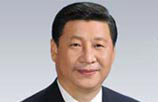
|
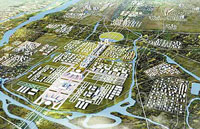
|

|
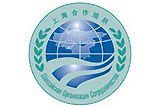
|

|

|
Today's Top News
New dynamic as US, Cuba restore relations
Oil's fall 'huge gift' for China: expert
China, US to act on food issues
Testing procedure curtails US hay exports to China
Chinese tech giants gain ad-market share
China set to make tracks for Europe
US moves to normalize relations with Cuba
Russians flock to stores to pre-empt price rises
US Weekly

|

|
